Mathematica’s Center for International Policy Research and Evaluation (CIPRE) studies programs and policies intended to improve the lives of women and children throughout the developing world. For International Women’s Day, several CIPRE researchers were asked to reflect on how their work has led to positive changes for women in developing countries.
When you think of research that has resulted in positive change for women in developing countries, what comes to mind?
Senior Vice President, International Research Division
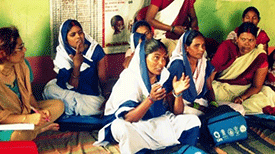
“The Ananya program in Bihar, India, funded by the Bill & Melinda Gates Foundation, comes to mind. Ananya included a set of interventions targeted around improving the skills and knowledge of community health workers and strengthening the quality of primary health care facilities to improve maternal and newborn health outcomes. The introduction of a mobile phone-based tool, for example, was designed to improve services provided by frontline health workers by reminding them to conduct timely visits to pregnant women and women who had recently given birth. Our rigorous evaluation showed the mobile tool had significant impacts on a number of beneficiary health outcomes, especially those related to antenatal care, child nutrition, and reproductive health.”
Director, CIPRE
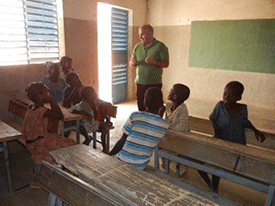
“BRIGHT is a great example. To address low rates of school enrollment and attendance, the government of Burkina Faso launched the "Burkinabé Response to Improve Girls’ Chances to Succeed" program—or BRIGHT—in 132 villages throughout 10 provinces in the country. BRIGHT interventions included the construction of primary schools and other complementary interventions, such as daily meals and textbooks. Our evaluation showed that BRIGHT continues to have large, positive impacts on enrollment and test scores, specifically among young girls, years after program launch. For a developing nation like Burkina Faso, which faces fundamental obstacles to improving literacy and getting more children enrolled in school, this is a huge step in the right direction. You can learn more about girls' education by reading my recent blog post.”
Researcher, CIPRE
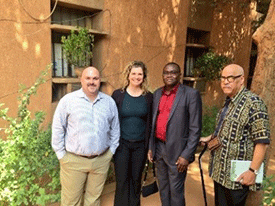
“In Niger, boys historically have higher rates of school enrollment than girls, possibly due to cultural factors and the often significant role girls play in carrying out household chores. The IMAGINE (IMprove the educAtion of Girls in NigEr) project was created to address this issue by investing in school construction using durable materials, on-site housing for female teachers, and separate bathrooms for girls and boys. With funding from the Millennium Challenge Corporation, a team of CIPRE researchers discovered that although IMAGINE had a positive impact on school enrollment, absenteeism, and math test scores for both girls and boys, the impact was larger for girls on all three. The project improved French test scores for girls as well. The focus on girl’s education in this project really worked.”
Director, International Research Division
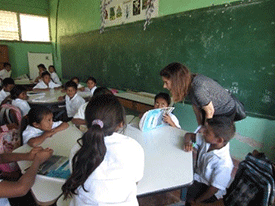
“I think about reading programs designed to increase literacy rates in parts of Latin America and the Caribbean region. I am working on rigorous evaluations of literacy interventions and access to education in Guatemala, Peru, Honduras, Nicaragua, and El Salvador. Our findings, as part of the Latin America and Caribbean Reading Evaluation, will help fill important gaps in the evidence base regarding what works to improve early-grade reading—such as using formative and end-of-grade assessments to inform instructional practice, strengthening teacher pedagogical training and support systems to teach reading effectively, and engaging parents and community stakeholders to strengthen the culture of reading outside of schools.”
Associate Director, CIPRE
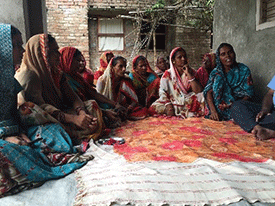
“I think of the research and data emerging from the David and Lucile Packard Foundation’s Population and Reproductive Health (PRH) Program, which aims to improve access to and the quality of reproductive health services, with a focus on South Asia, Sub-Saharan Africa, and the United States. As the monitoring, evaluation, and learning partner for the PRH program, we are helping to identify and evaluate effective ways to provide women—and their family members—with high quality reproductive health information and services, such as adolescent sexual and reproductive health services, comprehensive sex education, and family planning services.”
Amanda Beatty:
Senior Researcher, CIPRE
“Thirty-six percent of children in Indonesia are at risk of not realizing their full potential—they are stunted (or shorter than expected for their age), which can lead to impaired cognitive ability. The Millennium Challenge Corporation is addressing this critical problem through a $134 million community-based project that seeks to improve maternal and child nutrition, sanitation, hygiene, and health-related behaviors. Mathematica’s ongoing evaluation measures how this program affects children as well as pregnant women and mothers, especially their pre- and post-natal health status, access to care, service utilization, and health practices. When women’s health improves, so do outcomes for their young children.”
Read more about these projects by visiting Mathematica’s Twitter feed (@MathPolResearch), where we demonstrate how research can #BeBoldForChange.
